
Alphabetical Menu
Chronological Menu
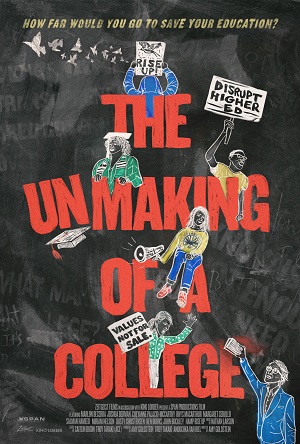
The Unmaking of a College is a mildly provocative, yet compelling documentary about a group of college students who led a sit-in for 75 days at Hampshire College, an independent college that specializes in teaching its students critical thinking. The students were angry and frustrated, but justifiably so. Their indignation comes from what happened after Miriam “Mim” Nelson became president of Hampshire College in 2018: she announced plans to make Hampshire less independent and more profitable which goes against everything that the school stands for. Most importantly, though, it goes against everything that the students believe in.
Director Amy Goldstein does a decent job of blending footage from the students, social media and interviews with them as former alumni such as filmmaker Ken Burns. If you haven't heard about the sit-in event, the longest sit-in in American history, this documentary provides a solid reader's digest of what happened and will be most suspenseful if you don't know the outcome. For everywhere else, though, it's not as suspenseful and lacks a broader scope as well as a more human story that would've allowed the audience to get to know some of the students more. It's not as thorough as a Frederick Wiseman documentary, for instance, and lacks enough balanced perspectives, especially since Miriam Nelson didn't agree to be interviewed. The editing is pretty crisp and slick, though, and doesn't lead to any dull or meandering moments while keeping the film's momentum going. At a running time of 1 hour and 24 minutes, The Unmaking of a College ultimately manages to be an engaging and inspirational documentary. It would make for a good double feature with We Are Many, a doc about the history of protest and standing up for justice, truth and democracy, and also the doc What is Democracy?. It opens at IFC Center via Zeigeist Films and Kino Lorber. Blacklight 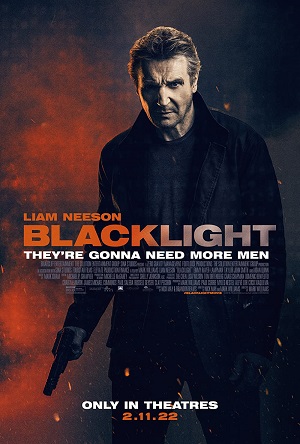 Travis Block (Liam Neeson) works for the FBI as "fixer" who rescues FBI agents from deep-cover missions. He has reason to believe that his corrupt boss, Gabriel Robinson (Aidan Quinn), is involved with a cover-up of Operation Unity which might be responsible for killing an activist, Sofia Flores (Mel Jarnson). Undercover FBI agent Dusty (Taylor John Smith) claims to have information about Operation Unity and hopes to share it with an investigative journalist, Mira (Emmy Raver-Lampman). Liam Neeson is back again with yet another action thriller with a contrived plot. The screenplay by Nick May and Mark Williams takes itself too seriously and even tries, unsuccessfully, to tag at your heartstrings with a subplot involving Travis trying to be there for his granddaughter, Natalie (Gabriella Sengos), and daughter, Amanda (Claire Van Der Boom). All of this turns out to be slightly more than filler because they're in danger by the bad guys once Travis gets further and further into trouble to expose the government cover-up. As the plot progresses, it becomes increasingly implausible without quite going into batshit crazy, over-the-top territory like Moonfall does. To compare Blacklight to far better, darker paranoid thrillers, i.e. The Parallax View would be like comparing oranges to rotten fish. The filmmakers aren't bold enough to delve into its dark subject matter unflinchingly nor do they even scratch the surface. Nor do they include enough comic relief to lighten the mood a little. What's wrong with including some levity? The villain and what he's involved with are both obvious from the get-go, so there's no real mystery to solve. He isn't given much of a backstory that makes him more than just a caricature anyway. Travis's confrontation with him outside of his home is one of the film's most clunky and preposterous scenes. Travis at least comes across as somewhat of a human: he struggles with OCD. This is the kind of movie that you can at least enjoy sporadically if you check your brain at the door, but if you're looking for a suspenseful, thrilling and exciting Liam Neeson film, you're better off watching Taken. The action sequences in Blacklight are nothing to write home about. Even the chases are forgettable for the most part. That said, Liam Neeson has charisma as usual. He's essentially modern Hollywood's answer to old Hollywood's John Wayne. The editing feels choppy at times and the cinematography isn't particularly impressive. On a positive note, Blacklight clocks under 2 hours, so it's not a chore to sit through like 2 hour and 30-minutes No Time to Die. At a running time of 1 hour and 45 minutes, Blacklight is lackluster, toothless and forgettable while low on thrills, suspense and intrigue. 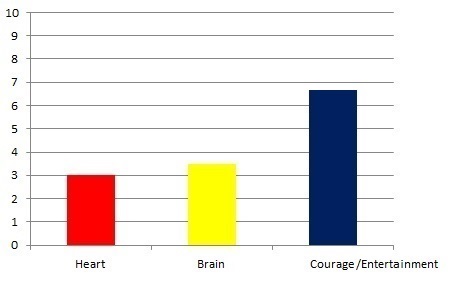 Death on the Nile 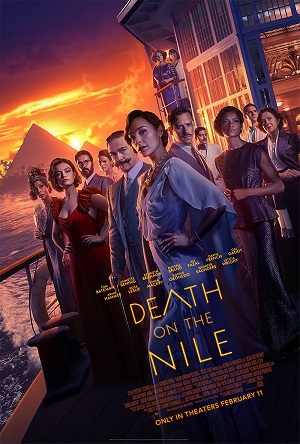 Private detective Hercule Poirot (Kenneth Branagh) joins newlyweds Linnet Ridgeway (Gal Gadot) and Simon Doyle (Armie Hammer) on a riverboat cruise along the Nile River for their honeymoon. He's tasked with investigating why Jacqueline de Bellefort (Emma Mackey), Simon's former flame, stalks them. Also along for the boat ride, there's Bouc (Tom Bateman), Bouc's mother (Annette Benning), singer Salome Otterbourn (Sophie Okonedo), the singer's niece Rosalie(Letitia Wright), Linnet's godmother Marie Van Schuyler (Jennifer Saunders), Marie's nurse Mrs. Bowers (Dawn French), Linnet's lawyer Andrew Katchadourian (Ali Fazal), and Dr. Linus Windlesham (Russell Brand). When a murder takes place on the boat, it's up to Hercule Poirot to use his detective skills to solve the murder. Based on the novel by Agatha Christie, Death on the Nile is a slick, but anemic crime thriller that's only intermittently suspenseful. The screenplay by Michael Green takes too long to introduce the characters and to provide exposition until getting to the meat of the story, the murder itself. A long, drawn-out, meandering first act includes a long black-and-white war scene that shows how and why Hercule Poirot ended up with a big mustache. Once the murder takes place, Death on the Nile slightly picks up its dramatic momentum, but not by much. The dialogue sounds clunky with only a few brief moments of dry wit, but nothing that's laugh-out-loud funny. Even on a dramatic level, there's not much emotional depth to the film because the relationships aren't very believable and there's virtually no chemistry between anyone. You can feel the wheels of the screenplay turning from start to finish which isn't a good sign. Even the murder mystery itself isn't particularly clever or surprising, and it's no help that the third act resorts to a very lazy scene where Hercule Poirot goes on and on about who he thinks the murderer is and his or her motives. That scene overstays its welcome and derails the film with over-explaining. A similar scene was much more effective at the end of the far superior murder mystery Knives Out. At least that film was smarter, more surprising and funnier than the limp, stale and bland Death on the Nile. On a positive note, the scenery looks picturesque and the costumes look stylish, but that's not nearly enough to hold the audience's interest. Gal Gadot is miscast and gives yet another wooden performance as though she were merely reading the lines from cue cards. She's graceful and beautiful, but lacks charisma and acting chops. Even Annette Benning is underused while Russell Brand plays against type in a serious supporting role that doesn't provide him with any comic relief. Jennifer Saunders and Dawn French have some amusing dialogue with witty banter, but their scenes are ephemeral and some of their lines can't be heard very clearly as the camera cuts away from them. The only stand-out among the cast is Sophie Okonedo who gives a very moving performance and represents the film's heart and soul, despite how much the film tries to make Hercule Poirot its heart and soul toward the end. At an overlong running time of 2 hours and 7 minutes, which feels more like 3 hours, Death on the Nile is stylish and slick, but anemic, clunky and meandering with yet another underwhelming and awful performance by Gal Gadot. 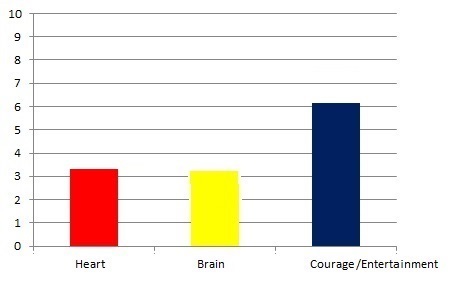 Fabian: Going to the Dogs 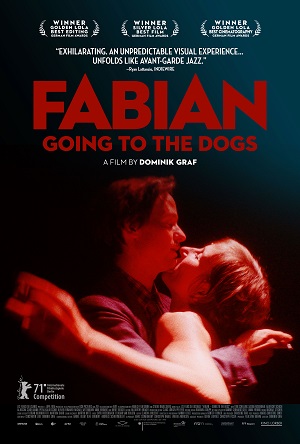 In 1931 Berlin, Jakob Fabian (Tom Schilling) moves to Dresden where he finds a job as a copy editor and goes out to brothels with his friend, Stephen Labude (Albrecht Schuch). When he meets Cornelia (Saskia Rosendahl), an aspiring actress, he falls in love with her, but soon he loses his job and has trouble making ends meet. His financial struggles, her flirtations with a producer (Aljoscha Stadelmann) and her success in her acting career puts their relationship to the test. Based on the novel by Erich Kästner, Fabian: Going to the Dogs has an intriguing premise that sounds like it could be an interesting character study or an unflinching romantic drama about a relationship on the rocks. Unfortunately, the screenplay by writer/director Dominik Graf and co-writer Constantin Lieb keeps Jakob at a rather cold emotional distance from the audience which makes it different for them to get inside his head to understand what he's thinking and feeling beneath the surface. Even his relationship with Cornelia fails to add enough emotional depth. They meet, have sex and fall in love, but their chemistry isn't palpable, so it's hard to care when she ends up in a love triangle between him and a movie producer. The film doesn't get inside Cornelia's head either, for that matter, which is a squandered opportunity because she's surely going through a lot on an emotional level, but it remains underexplored. The same can be said about the rise of the Nazis Party which is the elephant in the room in 1931 Germany, but the film skirts around that for the most part without generating enough tension from it. What Fabian: Going to the Dogs lacks in substance, it compensates for that somewhat through its visual style. The cinematography looks trippy and even dizzying at times with split screens, quick cuts, unnatural lighting and camera angles. Sometimes the film gets tripped up over its visuals which occasionally become distracting and nauseating. While Dominik Graf should be commended for being bold enough to make the film seem visually experimental like a Guy Madden film, it comes with diminishing returns, especially at the 2-hour mark. You can feel the weight of the nearly 3-hour running time which isn't a good sign. There's enough material here for a 3 hour film, but the way that it's executed with the over-the-top visual style makes it an exhausting, shallow and tedious experience that's less than the sum of its parts. Tom Schilling's charismatic performance is the glue that holds Fabian: Going to the Dogs together. It ultimately suffers from style over substance. 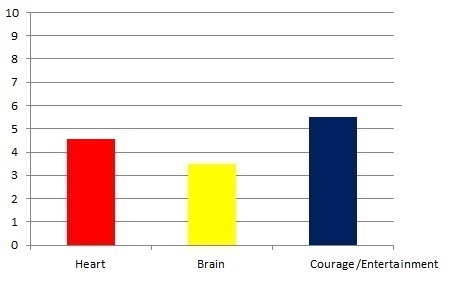 Give or Take 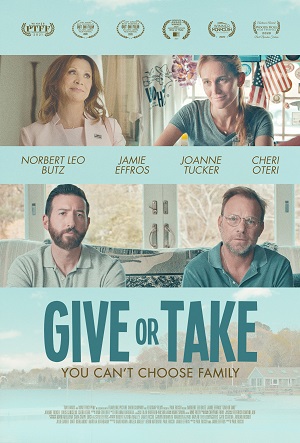 After his father dies, Martin (Jamie Effros) travels from New York City to Cape Cod to spend time at his father's house he hopes to sell with the help of a real estate agent, Patty King (Cheri Oteri). Ted (Norbert Leo Butz), his father's boyfriend, also lives at the house, but doesn't want Martin to sell it. Meanwhile, Martin reconnects with Emma (Joanne Tucker), a local bartender who he used to go to school with during his childhood. Complicating matters further, his current girlfriend, Lauren (Annapurna Sriram), arrives from New York. Give or Take is an emotionally engrossing story about two men who deal with grief in their own separate ways. Martin lost a father whom he had a rocky relationship with; Ted lost a lover who meant a lot to him. Martin and Ted barely know each other and don't quite get along with one another at first. While it's easy to predict where the plot will be headed toward after that point and to figure whether or not Martin and Ted will eventually get along, that predictability is forgivable because Give or Take is fundamentally about their emotional journey toward that inevitable point. Kudos to writer/director Paul Riccio and co-writer Jamie Effros for seeing and treating Martin and Ted as human beings who are struggling to navigate through many different emotions that come with grief including anger, sadness and frustration. Despite how different Martin and Ted may seem and have different opinions when it comes to whether or not to sell the house, they have at least one thing in common: emotional pain.
Riccio and Effros do a great job of blending tragedy with just the right amount of levity, sometimes even with dark, witty humor like in Hal Ashby's Harold & Maude. They avoid turning the film into a heavy-handed, schmaltzy melodrama or soap opera which it could've easily turned into with a less sensitive screenplay. They don't paint anyone as a villain, and they trust the audience's emotions and imagination by not including any flashbacks to the relationship between Martin and his father or Ted and Martin's father. In other words, they excel at incorporating exposition without taking away from the film's dramatic momentum. To be fair, the relationship between Martin and Emma as well as him and Lauren feel like extra padding in an already complex and compelling narrative that didn't really need those subplots, but they're not too distracting. The evolving dynamics between Martin and Ted, and how they affect one another as human beings are a large part of what makes up the heart, mind and soul of the film. Jamie Effros and Norbert Leo Butz both give solid performances that ground Give or Take further in humanism, a truly special effect. They don't over-act--there's no hamming involved--even when their conversations get pretty heated, so that's a testament to their skills as actors. Cheri Oteri is very well-cast as the real estate agent who provides a little comic relief. She, too, doesn't go over-the-top or try too hard to be funny. That's another one of the film's strengths: it doesn't try too hard to be anything, so it doesn't become preachy, cheesy or contrived. There's just the right touch of nuance and naturalism that allow the film to be much more than the sum of its parts and to be relatable on a human level. By treating the characters as human beings, the filmmakers also treat the audience as human beings which is a remarkable feat. At a running time of 1 hour and 43 minutes, Give or Take is a warm, wise and genuinely heartfelt emotional journey. 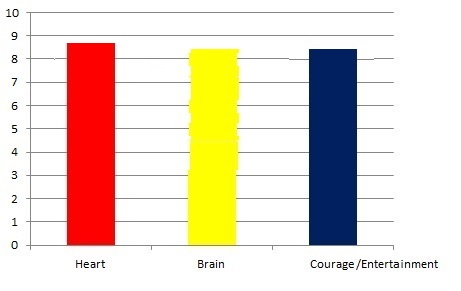 Here Before 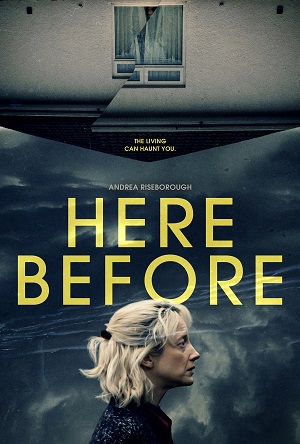 Laura (Andrea Riseborough) lives with her husband, Brendon (Martin McCann), and son, Tadgh (Lewis McAskie), in a suburban home. She's still in the process of grieving her daughter, Josie, who died in a car accident. She believes that Megan (Niamh Dornan), the daughter of her new next door neighbor, is the reincarnation of Josie which leads to tensions between Laura and Megan's mother, Marie (Eileen O'Higgins), and father, Chris (Martin McCann). Here Before is an engrossing, tender story about grief that works most effectively when it's not trying to shock or scare the audience with its supernatural elements. Writer/director Stacey Gregg eschews a first act by skipping right to the second act during the aftermath of the accident that killed Josie and focusing on how her death affects Laura's mental and emotional state. It's heartbreaking to watch how she remains fixated on Megan, but at the same time it makes her a bit creepy. The psychological aspects of the film are quite provocative and even somewhat thrilling as you wonder whether or not Laura is experiencing something supernatural or if it's all in her head or maybe a little bit of both. Marie and Chris have every right to be fearful of her and how obsessed she is with Megan. That fine line between natural and supernatural makes Here Before even suspenseful at times, but once it crosses head-first into one of those sides, which won't be spoiled here, it no longer leaves room for interpretation and becomes a mediocre, less understated genre film. At least it doesn't cross into Audrey Rose territory, although that film is much darker and scarier than Here Before, but just as emotionally charged. Fortunately, the connection between Laura and Megan feels palpable, so regardless of whether or not Megan is truly the reincarnation of Jose, the result is the same: Laura is clearly struggling with grief and her unconditional, eternal love for Josie. Interestingly, writer/director Stacey Gregg doesn't include scenes with Laura and Josie bonding before she was dead, so she lets the audience fill in the gaps and project from their own experiences as a child or parent. Andrea Riseborough gives an emotionally raw and resonating performance that helps tremendously to anchor Here Before in humanism, both the lighter, more hopeful sides of it and the darker elements. The film's emotional depth doesn't come from the screenplay, but rather from Riseborough's emotionally honest performance. Even when the rather rushed, unevenly-paced third act takes a slight nosedive, Riseborough still manages to keep the audience emotionally captivated which helps the film to avoid derailing or crashing. The set design, lighting, music score and cinematography all help to create an eerie mood without going over-the-top. Its style essentially becomes part of its substance. At an ideal running time of 1 hour and 23 minutes that doesn't overstay its welcome, Here After is an atmospheric, poignant and tender psychological thriller. 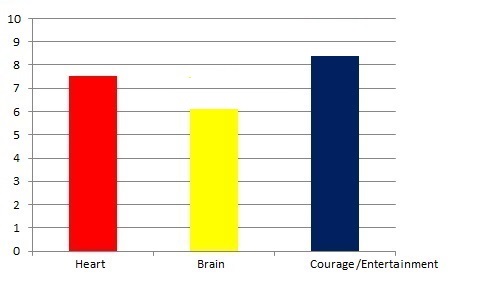 Marry Me 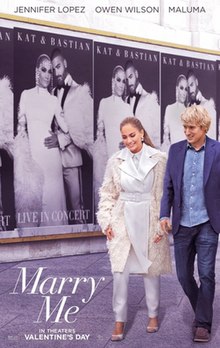 Charlie Gilbert (Owen Wilson), a divorced single father, lives with his daughter, Lou (Chloe Coleman), and works as a math teacher. He takes Lou and his best friend, Parker Debbs (Sarah Silverman), to a concert for musicians Kat Valdez (Jennifer Lopez), and her fiance, Bastian (Maluma). Kat expects to marry Bastian in front of the audience, but right when they're about to exchange vows, she sees evidence on social media that he's cheating on her with her assistant. Instead of marrying him, she impulsively picks Charlie as her new husband when she singles him out from the crowd as he's holding a sign that says "Marry Me", the name of one of her hit songs. Based on the graphic novel by Bobby Crosby, the screenplay by John Rogers, Tami Sagher and Harper Dill blends comedy, romance and drama with mixed results. As a comedy, it falls flat because even though Charlie and Kat are an unlikely couple and opposites in many ways, there's nothing funny about how their different lifestyles clash. There's potential here for a witty screwball comedy, but instead Marry Me opts for the kind of by-the-numbers and bland romantic comedy that you can get up to go to the bathroom without hitting "pause" and come back without missing anything. Without wit, banter between Charlie and Kat, they're a boring couple, even more so because the film barely slows down to allow you to get to know them. Even When Harry Met Sally... treated their characters as human beings and allowed them to cry, get angry and more which makes them complex and universal. Charlie and Kat, on the other hand, rarely argue or express their darker emotions lurking beneath the surface. Notting Hill, which Marry Me pales by comparison, at least makes the audience laugh to keep them entertained which allows them to forget or forgive how far-fetched the premise is. In Marry Me, it's hard to buy, forgive or forget the preposterous premise from start to finish. For a romantic comedy to work as a romance, it has to have at least a little chemistry between the leads. Owen Wilson and Jennifer Lopez lack that chemistry which is probably the fault of the lazy screenplay rather than the actors. Owen Wilson has an odd charm that breathes a little life to his role, but not nearly enough to rise above the mediocre screenplay. Just as expected Sarah Silverman shows up as the comic relief like she did in the far more witty and funny romantic comedy Heartbreakers, which also has an implausible plot, but it doesn't make the film less entertaining. Chloe Coleman is also in a funnier movie with a forgivably implausible plot called My Spy. That said, Marry Me is a masterpiece compared to the unintentionally funny, cringe-inducing and uneven Gigli, so at least there's that. Unfortunately, it clocks nearly 2 hours which is far too long, stretches its premise too thin and ultimately overstays its welcome. The brief footage at the end where couples mention how they met and fell in love feels more engaging on many levels than the film itself. At a running time of 1 hour and 52 minutes, Marry Me is an amusing, harmless and sweet, yet forgettable diversion that doesn't offer anything new, surprising, funny, moving or deep. It's just more bland sausage from the sausage factory known as Hollywood.
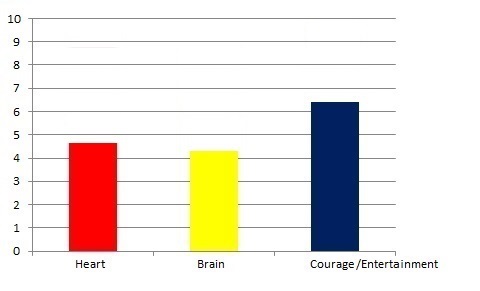 Minamata 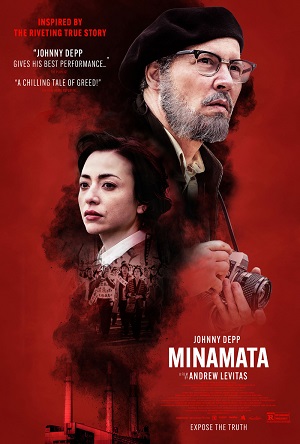 W. Eugene Smith (Johnny Depp), a photojournalist for Life Magazine, travels to Minamata, Japan in 1971 to photograph the harmful effects of mercury poisoning on the people of Minamata. The local chemical company Chisso is responsible for polluting the city's water with mercury and causing the people to suffer from Minamata disease. Meanwhile, he falls in love with an activist, Aileen (Minami), while risking his life to take photos for Life Magazine editor Robert Hayes (Bill Nighy). Minamata works both as a character study as well as a slow-burning thriller about someone who joins the movement to expose a environmental and human rights issue. W. Eugene Smith is such a man. He's broken on the inside and haunted from his experiences as a war photojournalist. He drinks heavily and struggles to make ends meet. What the screenplay by David Kessler captures so effectively is Smith's perseverance, awareness and courage to do the right, moral thing even if it means putting himself in danger. Smith's camera is, in a way, like a weapon or at least a tool that leads toward a powerful weapon: the truth. That makes Smith essentially a soldier to a certain extent. His confrontation with one of the executives of Chisso Corporation is one of the film's most powerful scenes as the two of them go head to head--their combat in that case is with words, not with guns. Smith's relationship with Aileen remains a less effective subplot that doesn't get explored enough and remains on the sideline too much. Director Andrew Levitas deserves praise, though, for not shying away from showing the horrors of the mercury poisoning as the victims suffer debilitating effects. He andscreenerwer David Kessler don't judge Smith for his flaws. He's a fallible human being who's going through a lot emotionally while not giving up no matter what his obstacles are. He's concurrently a hero for expositing injustices to the world through his photos. Not all heroes wear capes, after all. Johnny Depp plays against type with an understated, nuanced and emotionally resonating performance. He helps to further ground Minamata in authenticity even in the moments of silence. The same can be said for his beard which actually looks real. Fortunately, the filmmakers don't resort to using voice-over narration which means that they trust the audience's emotions and intelligence. They also wisely trust Depp's performance which provides a window into Smith's soul. Bill Nighy impresses in his supporting role, but there aren't enough scenes with him. The main focus is on Smith and his experiences in Minamata. Aesthetically, the cinematography is terrific with stylish use of lighting at times, and even some scenes that revert to black-and-white. Be sure to stay through end credits that show Smith's photos. At a running time of 1 hour and 55 minutes, Minamata is spellbinding, taut and genuinely heartfelt. 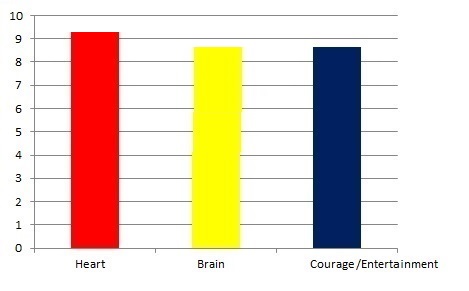 The Pact 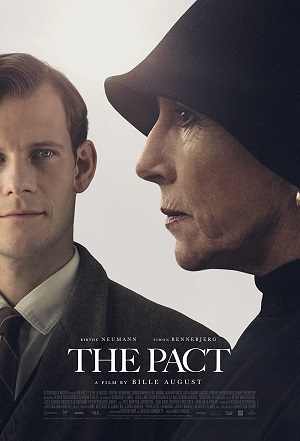
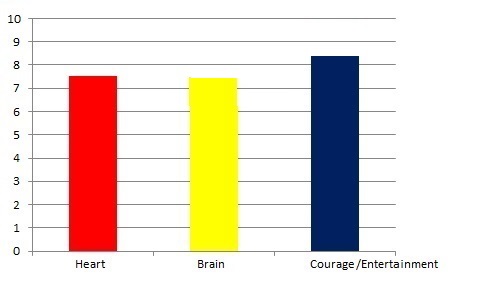 Playground 
7-year-old Nora (Maya Vanderbeque) goes to school with her older brother, Abel (Günter Duret). He gets picked on by classmates repeatedly. When she witnesses him getting bullied, she tries her best to stop it by informing teachers, but to no avail. Writer/director Laura Wandel uses a documentary-like approach to telling a seemingly simple narrative about a bullied child. Playground is not just about bullying, though, but about the relationship between a brother and his sister who's gradually learning how to process her emotions and how to react to it upon witnessing bullies picking on her brother. Wandel doesn't paint the bullies as villains; they're just kids who don't understand the consequences of their actions. Whether that's because of the school's incompetent faculty or because of the bullies' parents isn't the focus here, but it does provoke that debate. Wandel focuses on the emotional journey of Nora and her experiences at school while following her closely. It's that particular journey of Nora's that makes Playground profound, poignant and unflinching. Nora is in nearly every frame of the film which puts the audience in her perspective and can get a sense of how she's feeling and what she's thinking even without narration. Wandel should also be commended for turning what may seem mundane into something so much more profound and interesting. In other words, the details of what Nora experiences at the school make the film absorbing because it's more grounded in realism and, above all, humanism. Maya Vanderbeque and Günter Duret give very natural performances as do all of the child actors. The adult actors don't have much of a role to play here because they're merely supporting characters, but even the small role of Nora's father played by Karim Leklou also feels organic. The documentary-like approach along how close the camera to Nora is reminiscent of the Dardenne brother's films like Rosetta or The Kid With a Bike. Wandel doesn't use any music to tug on the audience's heartstrings because she trusts their emotions. The material itself has enough emotional depth and even some tension that music would be redundant or a way of spoon-feeding the audience. Wandel doesn't avoid sentimentality, but she does wisely avoid preachiness, schmaltz and melodrama. The final shot of the film, which won't be spoiled here, is a simple, yet sweet and tender scene that speaks louder than words. It will haunt the audience much like the last shot in Francois Truffaut's The 400 Blows or, to a certain extent, like a powerful moment between two characters at the end of Mass that hits similar notes. At a brief running time of just 1 hour and 12 minutes, Playground is a provocative, engrossing and honest slice-of-life. 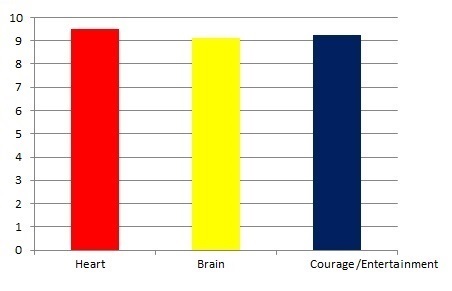 |